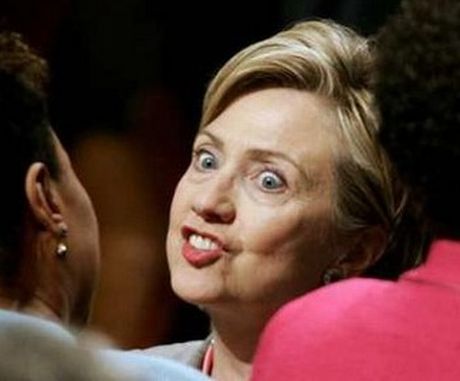Here’s why Hillary Clinton faces love-hate reactions
Washington, January 19:  An expert at the University of Richmond has come up with an explanation for the “double bind” facing US presidential candidate Hillary Clinton as she tries to demonstrate masculine, leader-like traits without appearing too masculine.
An expert at the University of Richmond has come up with an explanation for the “double bind” facing US presidential candidate Hillary Clinton as she tries to demonstrate masculine, leader-like traits without appearing too masculine.
“This double bind results from the need for women to demonstrate masculine, leader-like characteristics to be perceived as effective, but they can’t be too masculine or people won’t like them,” said Crystal Hoyt, assistant professor of leadership studies at the university.
Thus, female leaders “need to show a certain level of femininity to be liked, but if they show too much, they will be perceived as an ineffective leader,” she added.
The researcher said that Clinton’s expression of emotion might have fed into some people’s perception of her as overly-feminine and not leader-like.
“However, it seems that Clinton doesn’t have a problem with being perceived as too feminine, thus her showing emotion might just serve to soften her image somewhat and increase her likeability,” she said.
Hoyt says that she has found in a study that during times of war or terror, people of both genders are more likely to support leaders with masculine traits.
"In times of peril, people prefer a leader with masculine traits more often found in men. These traits include assertiveness, aggressiveness and dominance versus caring concern and care for others—empathy," she says.
The study, however, also points out that female leaders who do not mix masculine traits with a display of feminine attributes are not particularly well received, she adds.
Deconstructing Hillary's campaign and persona in the light of these findings, Hoyt says that while people want strong, tough, leaders with masculine traits during times of peril, they “don't like women who are very dominant in a leadership role if that's not tempered with some femininity."
"Hillary appears to be walking a very thin line. She needs to be masculine in the sense of displaying confidence that she can lead through war but at the same time, show that she's also a woman," Hoyt said.
She said that Hillary's stance on a number issues—from talking tougher on Iran than other Democratic candidates to appearing on daytime television shows that are targeted primarily towards women—might reflect her intuitive understanding for the necessity to project both masculine and feminine traits.
Hoyt, however, agreed that such traits did not appeal to everyone, which may account for the love-hate reaction.
"Some people love her because she's a pioneering woman. There also are those who hate her because she's not properly feminine and wants to lead the country, which doesn't fit into the idea of what a woman is or a top leader is," she said.
Her study, ‘Choosing the Best (Wo)Man for the Job: The Effects of Mortality Salience, Sex, and Gender Stereotypes on Leader Evaluations’, will be published in Leadership Quarterly. (ANI)